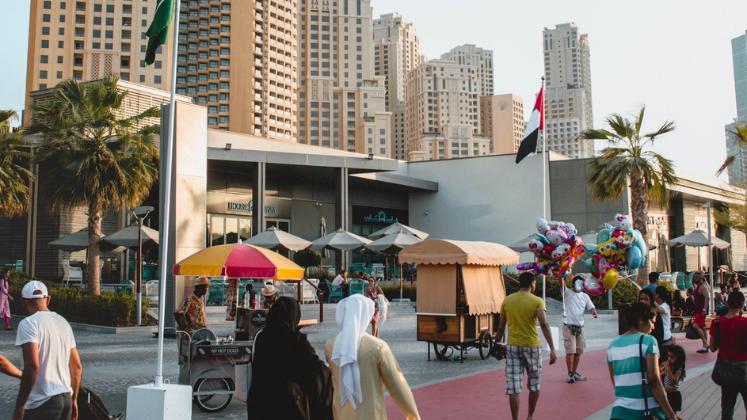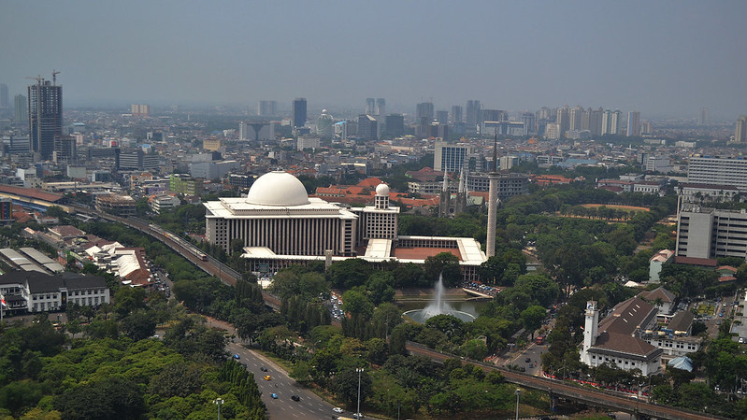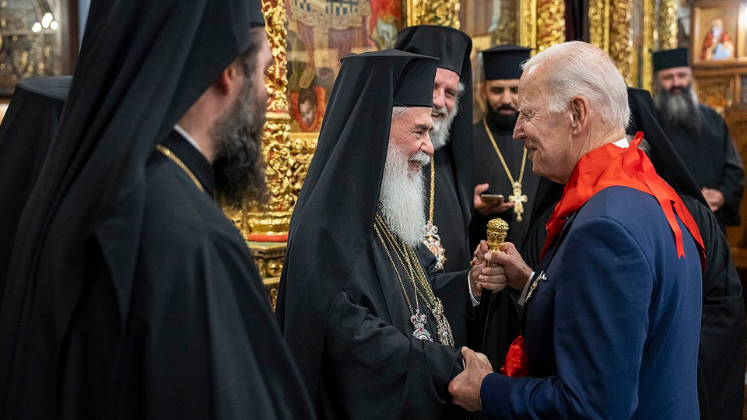Last week we took a comparative look at the morality police and interpretations of law between Saudi Arabia and Iran. This week, in the second part of his work on Democratic vs. Corrupted Shārīe‘ā, Mohamed ‘Arafa pitches a way forward for Islamic jurisprudence and moral authority.

Undoubtedly, interpretations of “commanding the right and forbidding the wrong” have drastically changed in countries like Iran. As Islam continued to spread in the last 1,400 years, so too has it branched into varying schools with wildly different legal systems, or “Shārīe‘ā.” For instance, even though classical interpretations of Shārīe‘ā, do not punish those who violate improper hījāb laws, countries like Iran resort to murdering violators in some instances. Although hījābs are common in the Middle East, almost the entire rest of it does not require women to wear headscarf by law. The puzzle is that even though the majority of the region does not have such laws, it appears to not be respected by countries like Iran regarding the touted value of “consensus” as a secondary source under Islamic law. However, what if there was a way to force the hand of nations to respect a more standardized and moderate interpretation of Shārīe‘ā (a room for a democratic Shārīe‘ā)?
The Middle East, and perhaps the entire Muslim world, might consider signing on to a democratic Shārīe‘ā by creating their own alliance, backed by an international governmental authority like the United Nations. Although opponents to the idea might scoff at the notion of Middle Eastern countries cooperating, Middle Eastern alliances are not new. For example, two multilateral Middle Eastern alliances exist today (e.g., the Gulf Cooperation Council (GCC)) and the Arab League). If the Arab nations are prepared to defend each other from both internal and external threats, they should consider the threat of a Shārīe‘ā different from its own “corrupted Shārīe‘ā.” Rising extremist leaders in positions to secure power by endorsing corrupted interpretations of Islamic law might be considered an internal threat, and the possibility of a bad Shārīe‘ā encroaching into neighboring Middle Eastern countries might be an external threat. Arab Muslim countries should join forces in an “International Islamic Alliance” to find common ground by establishing a “correct,” democratic Shārīe‘ā. The alliance would give each country the right to draft and vote on legislation to create a standardized and moderate Shārīe‘ā. Countries like Iran have a particular incentive to join the alliance lest it waive its right to voice its opinion globally.
The obvious question is what happens if a country chooses not to join? After all, international institutions are limited in their ability to punish countries which violate international norms. Even the primary goal of an International Islamic Alliance is to delegitimize corrupted interpretations of Shārīe‘ā, a secondary goal is also just to begin the dialogue between countries and its citizens as to what “Shārīe‘ā” actually means. As of now, no arena exists in which nation-states debate their interpretations of Islamic law. But with an International Islamic Alliance, Muslim governments will be forced to reckon with their Shārīe‘ā interpretations and justify laws which are anomalous in the region (e.g., Iran’s improper hījāb law). If some specific Arab Muslim leadership truly believes some of their improper laws are rooted in Qurā’nīc duty, it should have no issue in defending how the law accounts for Islamic principles in front of its Muslim peers.
Democratic Shārīe‘ā Index: Implications for Dictatorship
Of course, countries like Iran may still not abide by the newly formed democratic Shārīe‘ā, or even join the International Islamic Alliance in the first place. However, Iran, along with nearly every other country in the Middle East is a member state of the UN, which means they are subject to investigation if in violation of international law. Given that the UN Charter calls for the “equal rights of men and women” (UN Charter, pmbl.) and freedom of religion, (UN Charter, art.18), an improper hījāb law seems ripe for scrutiny by UN officials. The UN should thus endorse the legitimacy of Shārīe‘ā, debates by the International Islamic Alliance as a method by which the Middle East can “reaffirm [its] faith in fundamental human rights.” (UN Charter, pmbl.). When the International Islamic Alliance begins to create its democratic Shārīe‘ā (e.g., forbidding an improper hījāb law), UN officials should require member states of both the UN and that Islamic Alliance to agree to international investigations to confirm these countries are observing the agreed-upon Islamic norms. The consequence(s) for nations which either do not agree to these investigations or continue to ignore democratic Shārīe‘ā may be a UN-backed Democratic Shārīe‘ā Index, aggregating the extent to which each country in the Middle East respects and ties its laws to the democratic Islamic law. Rulers and lawmakers of countries which do not abide by that mode will likely see a rise in public demands calling for answers as to why its Muslim leaders are not respecting the consensus of Islamic principles in the Muslim World. Even though rulers in these countries are notorious for being corrupt), the public will clearly see how its leadership ignores the precedent established by the International Islamic Alliance, the international pressure of the UN, and the clear data of the Democratic Shārīe‘ā Index. Put simply, rulers in Muslim countries must answer the following question: Are they behaving as Muslims?
Countries which refuse to abide by democratic Shārīe‘ā should make us skeptical, not only of the legitimacy of the Qurā’nīc roots such laws probably do not have, but also of the intentions of the leaders who implement them. For instance, even though Iran’s Ayātollāh Khāmeneī claims to be a religious leader who has the required credentials – knowledge of the Sunnāh, and devotion to the Shārīe‘ā objectives, to issue a fātwā– it is evident that the practices of the state, such as the murder of Amīnī and the raping of child detainees, does not align with fundamental Islamic norms. For someone like Khāmeneī – and others – to not immediately rebuke such actions indicates his true intention: to oppress the masses and maintain his own power with an iron fist. However, authoritarian rulers are not new to the Middle East. This is precisely why it is imperative for there to be international cooperation in the region to temper the tendencies of power-hungry rulers like Khāmeneī from committing further atrocities under the guise of Shārīe‘ā law. And who better to delegitimize the false Islamic underpinnings of the Iranian religious theocracy than its neighbors, most of which, like Iran, also purport to follow the Shārīe‘ā but with far less violent and catastrophic results. Perhaps therein lies the beauty of a proposal like the International Islamic Alliance: the irony of a region filled with autocratic regimes coming together to democratically destroy the most radical interpretations of Shārīe‘ā law. It is a small feat for a country in the Middle East (Muslim World) to dismiss criticisms of the West as ignorance towards Islamic law. But it is a far greater challenge to convince the same of one’s fellow Muslims.





